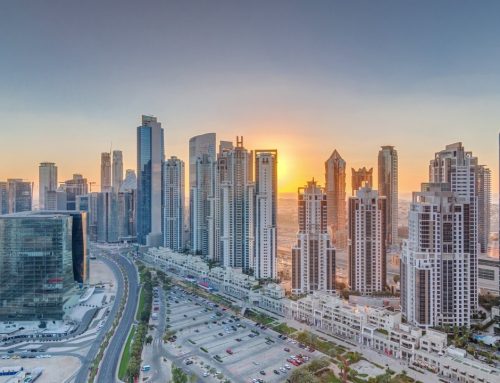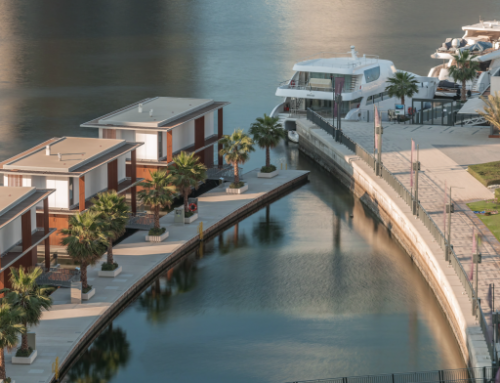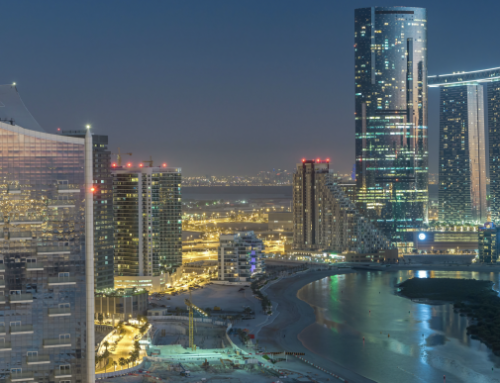Choosing Between Commercial and Residential Real Estate in UAE
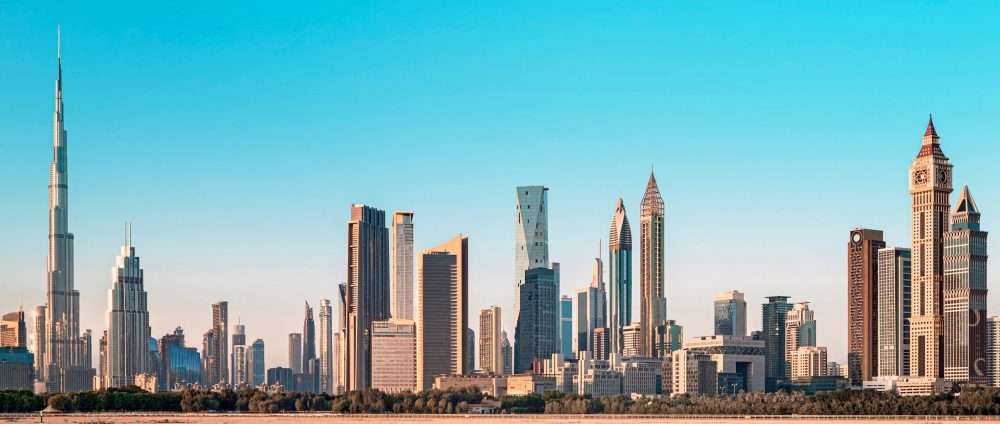
The United Arab Emirates (UAE) continues to be a global hotspot for real estate investment, thanks to its thriving economy, strategic location, and investor-friendly regulations. When it comes to real estate investment in the UAE, potential investors often find themselves choosing between commercial and residential properties. Each type of investment has its unique advantages and challenges, making it essential to understand the key differences and benefits of both. We’ll delve into the pros and cons of investing in commercial real estate versus residential real estate in the UAE.

Understanding Commercial Real Estate Investment
Commercial real estate (CRE) refers to properties used for business purposes, such as offices, retail spaces, warehouses, and industrial facilities. In the UAE, commercial properties are predominantly located in bustling areas like Dubai’s Business Bay and Abu Dhabi’s Al Maryah Island.
Advantages of Commercial Real Estate Investment
- Higher Rental Yields: Commercial properties generally offer higher rental yields compared to residential properties. Businesses are often willing to pay a premium for prime locations.
- Longer Lease Terms: Commercial leases tend to be longer, typically ranging from 3 to 10 years, providing more stability and predictable income.
- Triple Net Leases: In many commercial leases, tenants are responsible for property maintenance, insurance, and taxes, reducing the operational burden on the property owner.
- Economic Growth Correlation: Commercial properties can benefit significantly from economic growth and increased business activity in the region.

Challenges of Commercial Real Estate Investment
- Higher Initial Costs: The upfront investment for commercial properties is usually higher compared to residential properties, which can be a barrier for some investors.
- Market Sensitivity: Commercial real estate can be more susceptible to economic downturns and changes in market conditions.
- Specialized Knowledge Required: Managing and investing in commercial properties often requires a deeper understanding of market dynamics and tenant needs.
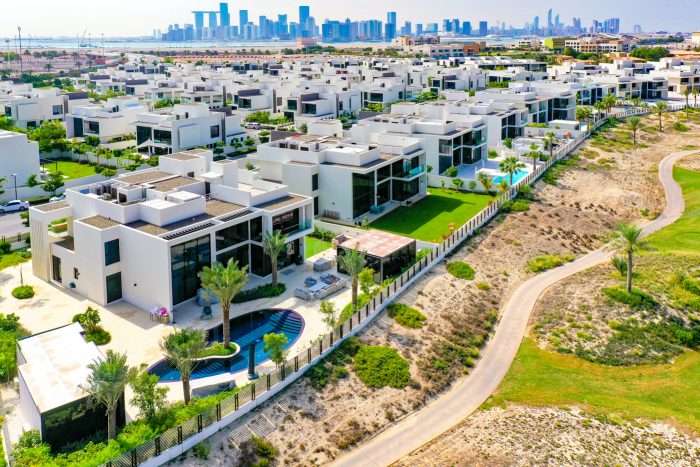
Understanding Residential Real Estate Investment
Residential real estate (RRE) encompasses properties intended for living purposes, such as apartments, villas, and townhouses. Popular residential areas in the UAE include Dubai Marina, Palm Jumeirah, and Saadiyat Island in Abu Dhabi.
Advantages of Residential Real Estate Investment
- Broad Market Appeal: Residential properties have a wider market appeal, attracting both local residents and expatriates.
- Lower Entry Costs: The initial investment for residential properties is generally lower, making it more accessible for a broader range of investors.
- Consistent Demand: There is a steady demand for housing, ensuring a consistent rental income stream, especially in prime locations.
- Easier Financing Options: Obtaining financing for residential properties is often simpler, with a variety of mortgage products available.

Challenges of Residential Real Estate Investment
- Shorter Lease Terms: Residential leases are typically shorter, often one year, which can lead to higher tenant turnover and potential vacancies.
- Maintenance Responsibilities: Property owners are usually responsible for maintenance and repairs, which can add to the operational costs.
- Regulatory Changes: The residential market can be affected by changes in regulations, such as rent control measures and tenant protection laws.
Both commercial and residential real estate investments in the UAE offer unique opportunities and challenges. Commercial real estate can provide higher rental yields and longer lease terms, while residential real estate offers broader market appeal and consistent demand. By carefully evaluating your investment goals, budget, market conditions, and risk tolerance, you can make an informed decision that aligns with your financial objectives. Whether you choose to invest in commercial or residential properties, the UAE’s dynamic real estate market continues to present lucrative opportunities for savvy investors.

